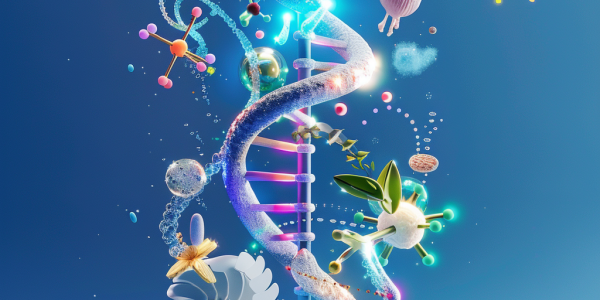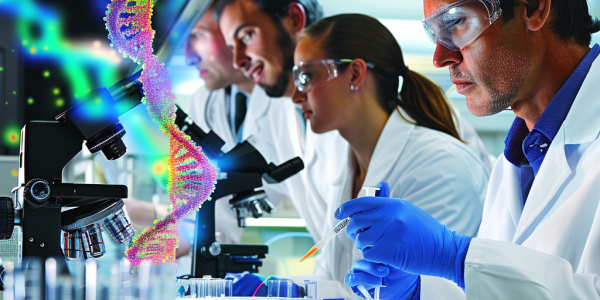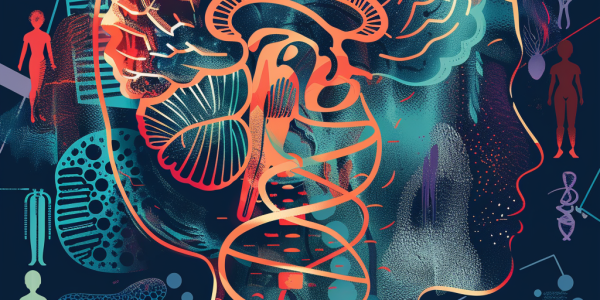Exploring the Genetic Links to Autism and the Importance of Data Privacy
Explore the latest research on autism spectrum disorder (ASD) and its genetic factors, particularly the impact of sex chromosome aneuploidies. A groundbreaking study reveals how variations in sex chromosome dosage influence autism risk, shedding light on the gender disparity in ASD prevalence. Understand the implications of these findings for future research and interventions in autism, while also emphasizing the importance of privacy in the digital age.
Study Links High-Potency Cannabis to Epigenetic Changes in DNA
A recent study from King’s College London published in Molecular Psychiatry reveals that high-potency cannabis, particularly with THC levels of 10% or more, induces significant epigenetic changes in DNA. This research highlights the potential mental health implications of cannabis use, especially in individuals experiencing their first episode of psychosis. The findings suggest a unique DNA signature linked to high-potency cannabis, paving the way for future studies on its genetic impact and potential risk assessment for psychosis.
UTA Advances Genomic Sequencing Technology for Medical and Agricultural Breakthroughs
Researchers at the University of Texas at Arlington have made significant advancements in genomic sequencing technology, enhancing our understanding of genetics with implications for medicine, agriculture, and environmental science. Their innovative approach promises faster, more cost-effective genome sequencing, paving the way for personalized medicine and improved agricultural practices, while also benefiting conservation efforts.
Study Reveals USP50’s Key Role in DNA Replication and Genome Stability
A groundbreaking study published in Nature Communications reveals the crucial role of the protein USP50 in DNA replication. Led by Professor Jo Morris from the University of Birmingham, the research highlights how USP50 regulates essential enzymes, ensuring smooth DNA replication and maintaining genetic stability. This discovery could pave the way for new approaches in treating genetic disorders and cancer.
Breakthrough Gene Therapy Offers Hope for Rare Genetic Epilepsy
Groundbreaking research from NUS Medicine reveals a promising gene therapy for a rare genetic form of epilepsy, targeting the KCNA2 gene mutation. This innovative approach uses Gapmer antisense oligonucleotides to reduce abnormal brain activity, offering hope for personalized treatments in epilepsy management. Discover how this advancement could transform the lives of patients with genetic epilepsy.
AI and Genetic Engineering: Pioneering the Future of Bespoke Proteins for Environmental Solutions
Recent advancements in artificial intelligence and genetic engineering are revolutionizing biotechnology, enabling the creation of bespoke proteins that could tackle environmental challenges like climate change and plastic waste. With AI’s ability to predict protein structures and gene editing technologies like CRISPR, researchers can design proteins for targeted applications in agriculture and medicine, paving the way for innovative solutions. However, ethical considerations surrounding these technologies remain crucial as we explore their vast potential.
Breakthrough Discovery on RNA’s Role in Cancer by University of Chicago Researchers
Researchers at the University of Chicago have made a significant discovery about RNA’s role in cancer, particularly related to TET2 mutations. This groundbreaking study, published in Nature, reveals how RNA influences DNA packaging and gene regulation, offering potential new treatment avenues for various cancers. Understanding RNA’s function could transform therapeutic strategies and improve patient outcomes.
Revolutionary Single-Cell Genomics Enhances Understanding of Human Microbiome
Recent research from Waseda University introduces a groundbreaking single-cell genomic approach to studying the human microbiome, revealing insights into microbial diversity and antibiotic resistance. This innovative method, developed in collaboration with bitBiome, Inc., addresses the limitations of traditional metagenomics, allowing for detailed analysis of individual bacterial genomes. Published in the journal Microbiome, the study highlights the potential of single-cell genomics to enhance our understanding of health and disease, paving the way for improved public health strategies and environmental monitoring.
Groundbreaking Study Identifies 115 Genes Linked to Anxiety Disorders
Groundbreaking research from Yale University reveals 115 genes linked to anxiety disorders, affecting 301 million globally. This study enhances our understanding of genetic factors, brain regions involved, and potential for targeted therapies, paving the way for personalized medicine in mental health treatment.
Breakthrough Research Offers Hope for Women with BRCA Gene Mutations
Recent advancements in cancer research focus on BRCA gene mutations, which significantly increase the risk of breast and ovarian cancers. Scientists are isolating these mutations to develop targeted therapies, potentially reducing the need for drastic measures like radical mastectomies. This innovative approach aims to enhance understanding of BRCA1 and BRCA2 functions, offering hope for women at risk and transforming cancer prevention and treatment.










